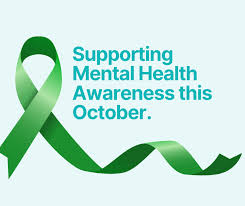
07 Oct The Untapped Cornerstone—Why Sleep is the Core of Mental Health Awareness
As we observe Mental Health Awareness Month, we rightly focus on reducing stigma, promoting emotional well-being, and ensuring access to vital support services. Yet, in our discussions, one fundamental pillar of mental health is often relegated to a footnote: Sleep.
As a dedicated Sleep Disorders Centre, we want to assert that treating sleep as secondary to mood is a clinical oversight we can no longer afford. The relationship between sleep and mental health is not a one-way street, where psychological distress merely causes sleeplessness. Instead, it is a powerful, bidirectional relationship—a two-way current where poor sleep can actively cause and worsen mental health conditions, and vice versa.
The Vicious Cycle: Understanding the Bidirectional Link
The evidence is clear, supported by leading health organizations like Project Sleep and Beyond Blue. The interplay between our nights and our days is far more intricate than simple fatigue.
- How Poor Sleep Undermines Emotional Resilience
Poor sleep is a direct attack on our brain’s emotional control centre. During a restorative night’s sleep, specifically in the Rapid Eye Movement (REM) stage, the brain processes the emotional charge of the day’s experiences, essentially filing them away as memories without the overwhelming emotional intensity.
When this process is disrupted:
- Emotional Dysregulation: The prefrontal cortex—the area responsible for logic, decision-making, and top-down emotional control—becomes less active. This leaves the emotional centres (like the amygdala) unchecked, making us more reactive, irritable, and less capable of handling even minor daily stress.
- Heightened Stress Response: Lack of sleep pushes the body into a state of chronic high alert, elevating stress hormones like cortisol. This state of hyperarousal makes us more vulnerable to anxiety and fear responses, eroding our emotional resilience over time.
- Risk for Disorders: Research indicates that chronic insomnia can significantly increase the risk of developing a mood disorder. For example, individuals with persistent insomnia are substantially more likely to develop depression and anxiety disorders. Poor sleep is not just a symptom; it is a powerful precursor to mental illness.
- How Mental Health Traps Us in Sleeplessness
The reverse flow of the relationship is equally damaging, creating a self-perpetuating cycle.
- Anxiety and Hyperarousal: Anxiety and excessive worry, a core symptom of many mental health disorders, trigger a persistent “fight or flight” mode. This constant mental and physiological arousal prevents the body from achieving the relaxation needed to fall and stay asleep. The racing thoughts of a worried mind keep the body awake and alert.
- Depression and Fragmented Sleep: Depression can manifest not only as difficulty falling asleep but also as fragmented sleep, early morning waking, and changes in the balance of sleep stages. In fact, up to 90% of individuals with depression experience some form of sleep disturbance. This resulting poor sleep then deepens the depressive symptoms, creating a cycle that is incredibly difficult to break without a targeted intervention.
 Our Call to Action: Prioritizing Sleep as a Core Treatment
Our Call to Action: Prioritizing Sleep as a Core Treatment
In the spirit of Mental Health Awareness Month, our call to action is to move beyond viewing sleep as a side effect and instead treat it as an essential, active component of recovery.
- Embrace Cognitive Behavioural Therapy for Insomnia (CBT-I):
For chronic sleep issues, a few basic habits are often not enough. We urge the community to look at CBT-I—a structured, evidence-based program that targets the unhelpful thoughts and behaviours around sleep. CBT-I is widely recommended as the first-line treatment for chronic insomnia because it not only improves sleep quality but also has a proven track record in reducing the symptoms of co-existing mental health conditions like depression and anxiety. This non-pharmacological approach offers a lasting solution by teaching the brain to associate the bed with sleep again.
- Make Sleep Screening Routine:
We call upon all healthcare professionals—from GPs to mental health counsellors—to routinely screen for sleep problems. Successfully treating the sleep problem directly often leads to a measurable improvement in mental health symptoms, making psychological and pharmaceutical therapies far more effective. Do not simply ask, “How is your sleep?” but rather, “Have you considered a formal sleep evaluation?”
Sleep is not a luxury; it is the fundamental process that dictates our capacity for resilience, emotion, and coping. This month, let us commit to recognizing sleep as the untapped cornerstone of mental wellness. By integrating sleep health into our strategies, we can break the vicious cycle and offer our community a more holistic, effective, and sustainable path to well-being.

